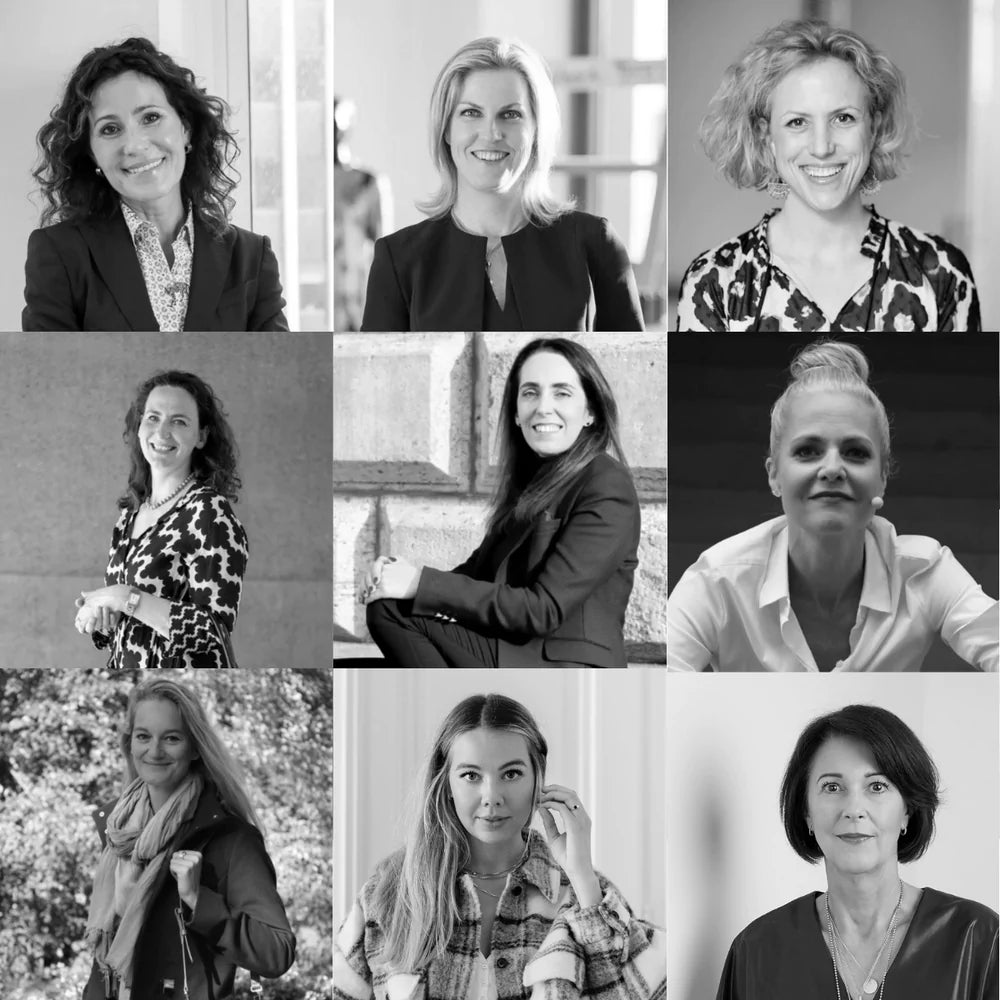Strong Voices Interview #20: Edith Saladin Bagda
ABOUT EDITH:
"Dare to try things out, take time to make decisions, look at the big picture, have the courage to leave a gap in your CV." - Edith Saladin Bagda
OUR QUESTIONS:
What were your most important milestones?
The learning curve is steepest when you start over, and the quickest way to learn to swim is to jump in at the deep end. Milestones therefore usually happen naturally when you start something completely new. For me, these steps were connected to work and life experiences in Paris, Hamburg, New York, Bangkok, back to Paris, Hong Kong and finally moving to Switzerland. This meant to leap from the agency side and consumer goods industry to the customer and client side, further into the luxury sector and finally to a service provider. But how do you build a new life in these places and situations? How do you find a social circle? Ultimately you learn the "system of new beginnings" - both professionally and privately. Another milestone I certainly do not want to ignore is the milestone of motherhood - I was able to learn a lot as a manager through my role as a mother. I also don't want to ignore the milestone of motherhood - I was able to learn a lot as a manager through my role as a mother.
Why are you so passionate about marketing?
As a child and teenager, I watched adverts frantically. Admittedly, advertising agencies in the 1990s and early 00s also had a different image than today: Rock'n'Roll, 99cents... Advertising was more present, the market was less fragmented. A lot was allowed, advertising was art. Who still remembers the legendary Benetton poster campaigns or those of cigarette brands?
For a long time, I wavered between a career in visual design and marketing, over time I have come to appreciate non-visual creativity. My teams will be smirking reading this - they're cursing me for my obsession with typography and graphics.
What are your experiences working together with different cultures and what is most important to consider?
Having experienced different cultures has helped me to observe situations, statements and processes better and to look at them in a more differentiated way. It teaches respect and empathy to understand how fundamental cultural attitude influences decisions, ways of looking at things and the way of working. This is probably most noticeable between Europe, North America and Asia. I was able to practice this balancing act every day in Hong Kong, to be a mediator between the expectations of the local teams and management abroad.
One other example: I have so many anecdotes from the time when I was frequently visiting Bali for business - polytheism (belief in many gods) impacts the daily business and strongly influences the working world. Taking this not into account would have been highly counterproductive.
In an international business context, I consider languages very important. Language is an expression of attitudes while simultaneously shaping our perceptions. However, ultimately, to practice this cultural “listening” you do not have to fly back and forth between countries and continents - there is a lot of cultural “understanding” to do within most corporate workplaces.
What excites you about opportunities of transformation?
The attraction lies in tackling something that at first seems slightly impossible. Then, after a year or two, looking back and marveling with the team at how far we have come together. Unleashing the potential of togetherness.
What did you have to learn as a leader?
Confidence – the first time I took charge of a team I was not even in my 30s yet and spoke a different language than my team members. I tried to compensate for this with a lot of hard work. Self-confidence was also important. With growing teams, you are not the one who is the best at everything or who knows best. You have experts in the team and you will need to learn to facilitate them by creating an optimal work environment to create and develop.Most importantly, the learning is not in the past, I'm still learning, all the time. For example, currently, experienced managers had to and still have to learn how to deal with the topic of hybrid working environments. In a constantly changing world, no one has ever achieved the status of a “complete manager” - otherwise it would all be so boring.
Your presence is confident and focused. Do you have any tips to feel more confident during meetings and presentations?
Preparation is the mother of happiness. But honestly, you don't always have the time to prepare optimally or sometimes even the longest time in the world doesn't help to feel prepared. Therefore: see a meeting or a presentation as an exchange or dialogue. Questions can be answered with "I don't know, but that's interesting and I'd like to find out".
What makes a good mentor?
Someone who criticizes, who has courage and who cares to give real feedback.
One last personal question: Which advice would you give yourself 10 years ago?
Dare to try things out, take time to make decisions, look at the big picture, have the courage to leave a gap in your CV.






